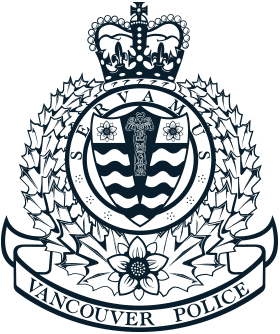Many people fear the possibility of being robbed or assaulted while outside the safety of their home, and though these incidents are rare, they do happen. There are some basic steps that you can take to help prevent becoming a victim, as well as some tips on what to do if it does happen.
The most important thing in any situation is to be aware of your surroundings at all times and to trust your instincts. If a certain person, place, or situation makes you feel uncomfortable, get to a place of safety immediately.
Online Marketplace Purchases
Making purchases or selling items online can by risky, but there are steps you can take to help protect yourself.
If you are meeting someone in person to make an exchange, always choose a public location with lots of people around. The VPD has a Safe Exchange Location right outside the front door of our headquarters at 2120 Cambie Street. It is well-lit and monitored by security cameras. If someone is reluctant or refuses to meet at this location, or any other public location, that is a strong indication that their intentions are not good.
Sellers
- If someone is forwarding you proof of payment via email, text or app messaging, double-check your bank account to ensure payment has been received.
- Beware of QR codes or other links to “verify your identity” where you are asked to provide sensitive information, such as your date of birth.
- If someone is paying you in cash, check to ensure it is not counterfeit.
Buyers
- Be wary of items priced well below their value. The age-old advice still rings true: if it seems too good to be true, it is too good to be true.
- Ask a seller to provide a receipt to help ensure the item is authentic and not stolen.
- Check the item to ensure it is in working order before you hand over payment.
- Scammers like to use a sense of urgency to pressure people. Take your time to make a decision – it’s better to lose out on a deal than to lose your money.
If you are confronted with a theft or robbery, hand over the item or money and call 911 right away. It is not worth risking injury or worse by trying to fight back.
Report the account to the online marketplace you used.
Learn more about how to help prevent becoming a victim of fraud.
At a Club or Party
- Always keep your drink in sight and don’t sample drinks from anyone – even friends or acquaintances
- Alcohol and “date rape” drugs are used in many sexual assaults – if you are going to drink, do so responsibly and be with trusted friends so you can look out for each other
- See more safety tips on preventing drug-assisted sexual assaults
Driving
- Keep all your car doors locked, even when you are inside the car
- Park in well-lit areas
- Visually inspect the interior of your vehicle before you get in
- Have your keys ready before you get to your car door, holding them between your thumb and forefinger in a ready position. If you are attacked, they can be used as a defensive tool, and fumbling for your keys makes you more vulnerable for an attack
- If someone tries to get in your car while you’re driving, simply drive off – if you’re unable to do this, honk your horn to alert other people to your situation and potentially scare off the intruder
General Tips
- Bring a cell phone along if you have one
- Stay alert, stand tall and be confident – attackers are more likely to choose a person who appears uncertain or afraid
- Carry cash and valuables in a front or inside pocket, and consider if you need to carry a purse or bag
- If you wish to give someone spare change, never pull out your wallet or open your purse – take change out of your pocket instead
- Use well-lit streets, stay to the middle of the sidewalk, and avoid alleyways
- Approach shadowy doorways, shrubbery, or anything that someone could hide behind with extra caution
- If you feel uneasy walking alone, find someone you know who will go with you, or plan your route along busy streets so that there are always people around
- If you think someone is following you, call 9-1-1, and then find the nearest place of safety
- If you believe a car may be following you, immediately do a u-turn, and call 9-1-1. Take note of the driver and license plate number, and continue to walk in the opposite direction
- Carry a whistle or personal safety alarm so you can alert others if you need help
- Carrying a weapon for self-defense is not recommended – introducing a weapon can increase the severity of an attack, as well as the chance of severe injury to yourself
- If you are verbally harassed, do not respond, keep walking, and call 9-1-1 if you fear for your safety
Learn more about online dating safety.
If You Are Stalked or Attacked
- Report it to police
- Keep a written record of everything – tell friends, relatives, employers, co-workers, or anyone else who witnesses an incident, to also keep a record
- Most importantly, remember that it is not your fault and you have nothing to be ashamed of – you will need help and emotional support in this difficult time, whether it comes from friends, relatives, professionals or support groups
- If you are attacked, try to comply with the attacker’s wishes – if they want you to turn over cash and valuables, these can be replaced
- Try to remain calm throughout the situation, as becoming hysterical can make the situation worse
- Try to remember details about the person’s appearance, such as their height, age, hair or eye colour, or any tattoos or scars
- Report the incident immediately – the details are fresher in your mind and the police have a better chance of catching the offender in the area
Learn more about reporting criminal harassment.
Running, Jogging or Rollerblading
- Make sure you know your route
- Avoid wooded areas at night and stay in well-lit areas
- Try to run facing oncoming traffic and wear reflective clothing
- Headphones make it hard to be fully aware of your surroundings so try not to use them, especially at night – if you do use them, only use one ear bud
- When cycling, wear a helmet and reflective clothing, especially when you use the roadways
Using an ATM Machine
- If anything or anyone strikes you as suspicious, use a different machine – trust your gut instinct
- If you need to use the ATM after dark, look for well-lit machines in places where there are people
- Cover the keypad with one hand while typing in your code with the other, even if you are by yourself
- If no money comes out, make sure to check the money slot for blockages and notify the bank immediately
- If using a drive-through bank machine, make sure all of your car doors are locked
Using Transit
- Plan your route beforehand, and know the transit schedule
- Choose busy and visible stops
- At night, use well-lit stops and sit near the driver
- Find more safety advice from Metro Vancouver Transit Police
Have You Been a Victim of Crime?
The Vancouver Police Victim Services Section can assist you with resources and support.
Women’s Personal Safety Workshop
Female VPD officers volunteer their time to teach women personal safety tactics, which are designed to be easily learned and remembered by women with no prior training.
Find more information and upcoming dates for the VPD’s Women’s Personal Safety Team workshops.


